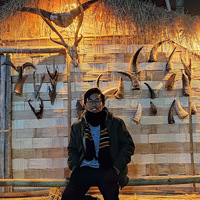- Elizabeth A. Povinelli, Gayatri Spivak, Postcolonial Studies, Michel Foucault, Partha Chatterjee, Dipesh Chakrabarty, and 44 moreSubaltern Studies, Citizenship (Anthropology), South Asian Studies, Postcolonial Theory, Contested Spaces (Anthropology of space), Burma Studies, Southeast Asian Studies, Intellectual History, Anthropology, Indigenous Studies, Feminist Theory, Capitalism, Politics, Ecology, Nagaland, Northeast India, Anthropology of the State, Indian History, Anti-Colonialism, Political Science, Anthropology of Tibet and the Himalayas, India, Arunachal Pradesh, Assam, Meghalaya, Manipur, Tripura, Mizoram, Zomia, Indian Politics, Ethnicity, Democracy, Sovereignty, Insurgency/Counterinsurgency(COIN), Anthropology of Kinship, Tribes, Political Anthropology, Southeast Asia, South Asia, Southeast Asian Politics, India (Anthropology), Elections and Voting Behavior, Moral Economy, and Insurgency and counterinsurgencyedit
The Kuki-Zomi conflict of 1997-98 took place in the district of Churachandpur, Manipur, between the 'tribes' who belonged to the same ethnic community, generally referred to in academic and political parlance as the Zo (erstwhile... more
The Kuki-Zomi conflict of 1997-98 took place in the district of Churachandpur, Manipur, between the 'tribes' who belonged to the same ethnic community, generally referred to in academic and political parlance as the Zo (erstwhile Kuki-Chin-Lushai/Mizo-Zomi) people, via shared ethnic myths of origin, kinship and cultural ties. This conflict has been invariably referred to as 'Unau melhaihhun (When brother forgot brother) or 'Buaikum" (Year of catastrophe) due to the damage done to the close kindred relationship shared between the 'tribes" and its persistent trauma among the kindred community. The conflict was eventually brought to an end with a symbolic 'Ritual Feasting"/"Sasin Salung Nekhawm' to signify "Hiamkham" (End of Conflict) between the 'Kuki Innpi and the 'Zomi Council' culminating in an Agreement on 14 October, 1998. This paper situates the conflict and eventual reconciliation based on an ethno-symbolic approach to the 'Cultural Memory' of the 'Zo People' and focuses on the salience of 'Ritual Feasting' within a reconciliatory narrative of ethnic continuity, in the context of the 'durable disorder of the region.
